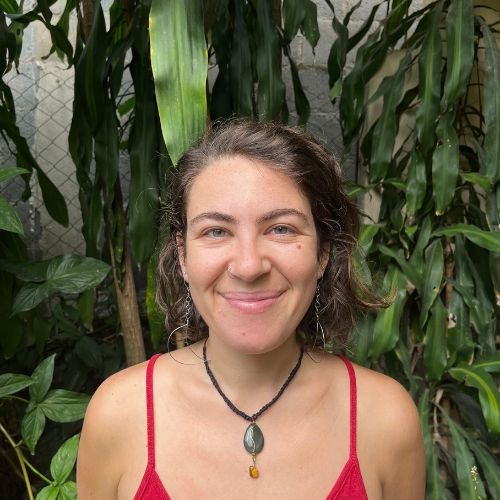
ABOUT US
Did you know that TUQTUQUILAL is a Q'eqchi word that means "Harmony" or "Natural Flow". That is what our team generates in our visitors, community and the Earth.
STORY
Tuqtuquilal Regenerative Center is a mountain that hosts the project born in 2017 in the tropical rainforest of Lanquin, Guatemala. Our goal is to promote a sustainable natural, social, and economic environment by working together with the Q'eqchi' Maya community, which has historically protected its ancestral territory.
Our concept of regeneration is based on the principle of understanding the wisdom that the land offers us so that we can repair the natural, economic, and social fabric that is embedded in the territory where Tuqtuquilal is located. Tuqtuquilal (tuuk-tuuk-iyl-lahl) is a word with origins in the Q'eqchi' Maya language that translates best into English as 'harmony' or 'natural flow.'
Our aim is to regenerate the land, promote sustainable community development, and entrepreneurship through ecotourism, artisanal production, organic agriculture, and education. Within our facilities, we craft a variety of products using raw materials (such as cacao, turmeric, ginger, cardamom, among others) with a network of farming families that make up the "Ratzum Cacao Network," which was created as part of the community organization process driven by the project.
MISSION, VISION & VALUES
MISSION
We are a regenerative center dedicated to regenerate the earth & promote harmony in community through agroecology, artisanal production, ecotourism, education and holistic healing.
VISION
Inspire the world our hearts know is possible - one of beauty, abundance and interconnectedness. Rooted in a regenerative and holistic model, embracing local cooperation, exchange and mutual support. Preserving the wisdom of the Mayan worldview and promoting balance of mind, body and spirit.
VALUES
-
Earth Care
-
People Care
-
Fair Share
-
Respect for the Mayan Q'eqchi' culture and community
-
Teamwork
Why is Regeneration necessary in the Q'eqchi territory?
Lanquín, a small town located in the northeastern part of Guatemala, faces multiple socio-environmental issues that directly impact the health and livelihoods of the local Q’eqchi' Maya community and the land they inhabit.
Deforestation
The expansion of industrial agriculture (monoculture crops), illegal logging, livestock areas, and increasing urbanization are significant factors contributing to the deforestation of Lanquín's tropical forests. This environmental degradation is removing trees that historically provided food, shelter, and income to the local community by creating degraded soils. Our work proposal is oriented towards suggesting diverse and permaculture-managed productive plots, as well as proposing reforestation efforts in water recharge areas.
Poverty and Malnutrition
The destruction of tropical forests, the lack of social assistance from the country's government, and the degradation of ancestral and indigenous diets have led to extreme poverty in this region, as well as rampant malnutrition due to the lack of access to proper nutrition sources.
Environmental Pollution
The local landfill has been inadequately managed for years, resulting in dangerous levels of contamination that threaten the health of the local population. The area surrounding the landfill has been contaminated with toxic chemicals and waste materials, poisoning not only the air but also groundwater supplies. The population in Lanquín lacks environmental education regarding solid and liquid waste management. Our work proposal is oriented towards suggesting and reclaiming everyday family practices that help reduce the ecological footprint generated by living in these spaces.
Education
According to 2019 data, only 21.61% of young people had access to secondary education, with a marked gender gap between men and women. The lack of educational opportunities significantly contributes to high rates of illiteracy, unemployment, and social inequality in this region. The educational system in Guatemala is deficient and precarious, with greater challenges in rural areas of the country. Our work proposal is oriented towards creating educational spaces based on popular and alternative educational methodologies.
Team











